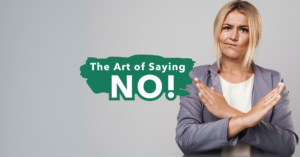Today’s environment demands that each and every one of us hones the ability to learn and to learn quickly. A quote from a Center for Creative Leadership White Paper sums it up nicely:
“When discussing the issue of long-term potential then, an individual’s current skill-set is of secondary importance to their ability to learn new knowledge, skills, and behaviors that will equip them to respond to future challenges. As a result, our focus must shift to finding and developing individuals who are continually able to give up skills, perspectives, and ideas that are no longer relevant, and learn new ones that are.”
Notice that this definition includes BOTH the ability to learn new things but equally important, to give up old skills. And most often, one must give up the old to make room for the new. However, this ability to question hard, reflect and rethink things, assimilate the new, and learn new ideas, beliefs and skills is counter to much Western thinking and consequently schooling. One must only think back to how our politicians are castigated for changing their mind (or waffling) to see how ingrained our culture is on having ONE right approach and then sticking to it.
Learning agility has been defined as possessing skills such as openness, willingness to learn, and flexibility. In addition, a learning agile person is curious about the world, has a high tolerance for ambiguity, good people skills, vision, and innovation.
The Center for Creative Leadership (CCL) defines four key skills for learning agility as:
- INNOVATING: not afraid to challenge the status quo
- PERFORMING: when in a challenging or new situation can remain calm and figure things out
- REFLECTING: take time to reflect on experiences and learn from them
- RISKING: purposefully put themselves in challenging situations that are outside their comfort zones
Additionally, CCL highlights one attribute that is highly likely to compromise learning agility and the ability to be successful in today’s environment. They call this defending, evidenced by clinging to current attitudes, beliefs and skills and becoming defensive when challenged. In contrast, learning agile folks are open to learning, challenge their own beliefs and attitudes, and are excited to engage with others who challenge their way of thinking.
Research is showing that leaders who are high in learning agility possess these traits:
- More extroverted, social, and active
- More likely to take charge
- More focused, more organized, more driven, more methodical
- More willing to continually refine and polish
- More original, more likely to create new plans and paths
- Seek complexity
- Readily accept change and innovation
- More resilient and able to rebound from misfortune quickly
- More at ease, calm, optimistic
- Less accommodating and more likely to challenge others, welcome engagement and a broad expression of opinions
It is compelling to note that class valedictorians and acing the SAT are not indicators of successful learners in today’s business world. Instead, agile learners most likely were the challenging students in school – always asking tough questions, pushing back on conventional thought, and not always just following the rules to get the good grade. Initiative and curiosity are increasingly more important in the workplace than following the rules, knowing the “right” answer and regurgitating information. Folks who can think broadly, connect disparate ideas and create, rather than problem-solve are, and will continue to be in high demand.
As I examine this list, I can think of NO situation in which becoming more learning-agile would not serve you and your organization well. And as I lay these skills against the world in which we find ourselves – fast-changing, diverse, demanding, challenging, and requiring new thinking and approaches – they resonate deeply.
In my next post I’ll share some steps you can take to learn quickly and well.
“I am learning all the time. The tombstone will be my diploma.” ~Eartha Kitt





One Response
“Folks who can think broadly, connect disparate ideas and create, rather than problem-solve are, and will continue to be in high demand.” More great insight, thanks Kris! Causes me to wonder how I can help my school-age girls challenge the status quo more often despite attending in a traditional school system that frowns on that.
Comments are closed.